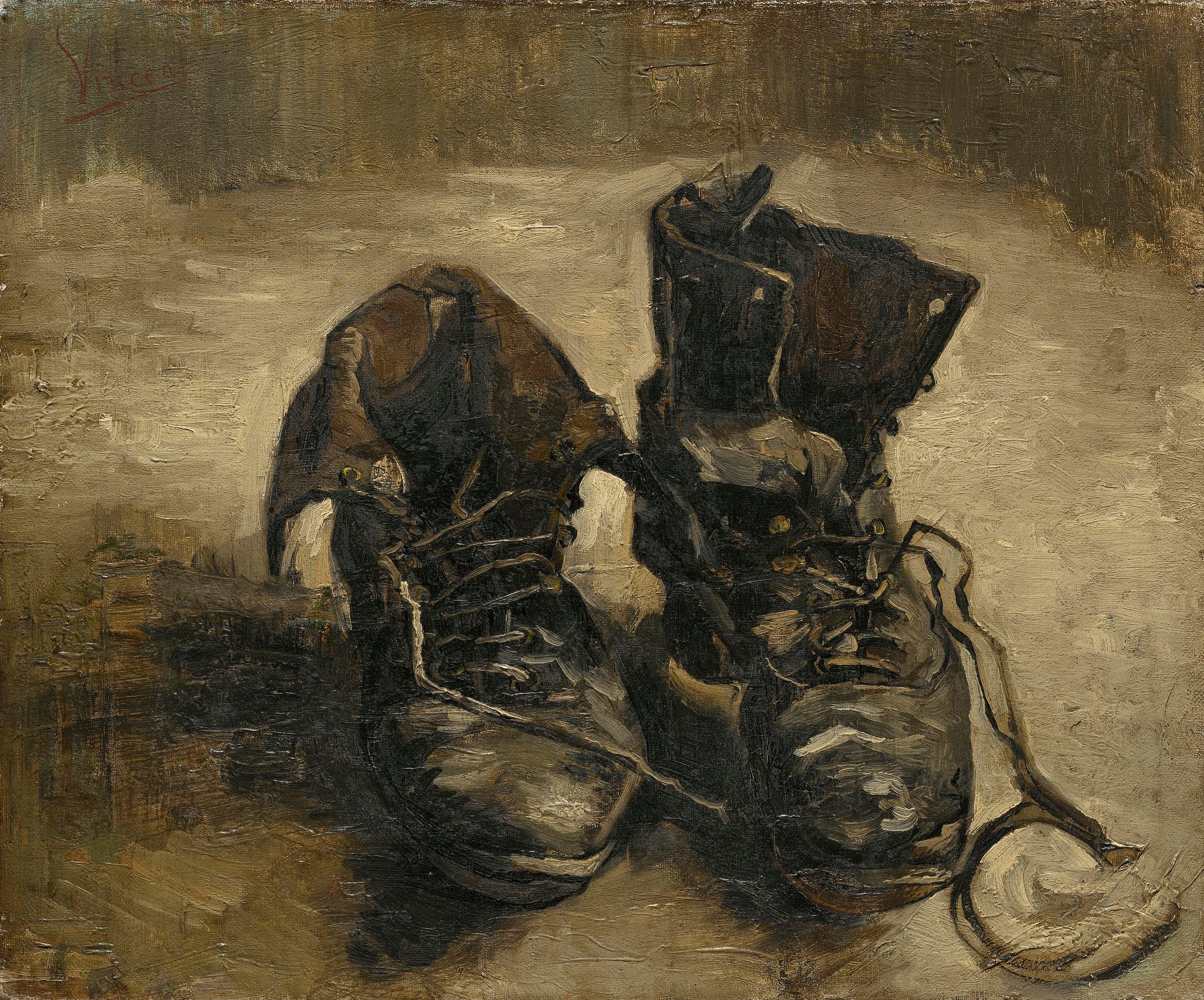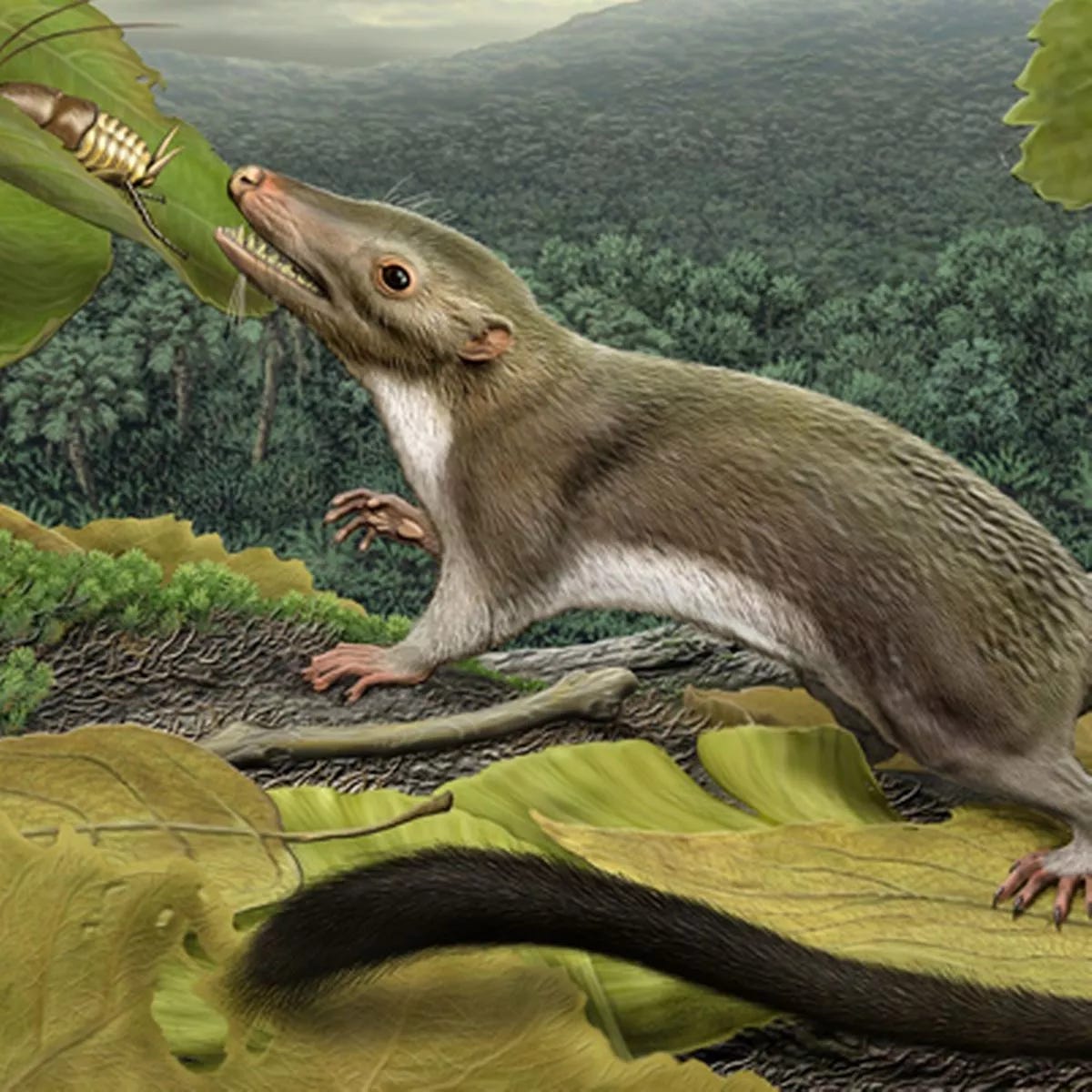Mesozoic Playback Settings
Let’s workshop this poem about how, with a mere tweak of some playback settings, we can bring an easily overlooked truth about ourselves into relief--into Heideggerian alethia (unconcealment)
scent of the day: Aramis, by Aramis (another urinal-cake-reminiscent dad scent )
Mesozoic Playback Settings
Even with mouse squeaks
on mute, watching porn
triple speed cannot but dredge up
(like mucosal catfish glinting
out from Lethe’s inky mud)
our rodent-whiskered roots,
our quivering-shrew core, once—
in the reign of dinosaurs—
scurrying on the surface.







"Mesozoic Playback Settings" is a poem that uses the metaphor of viewing pornography at triple speed to explore the remnants of our primordial, rodent-like instincts. The poem opens with the seemingly mundane yet frenetic image of "mouse squeaks on mute" and the fast-forwarding of pornographic content, establishing an unexpected juxtaposition between modern behavior and ancient evolutionary history. This deliberate use of pornographic imagery—especially at accelerated speed—serves to amplify the frenetic, animalistic nature of desire, subtly suggesting that beneath our sophisticated technological behaviors lie traces of primal instincts dating back millions of years.
The poem invokes the "rodent-whiskered roots" and "quivering-shrew core," calling attention to the distant evolutionary past, particularly the Mesozoic era when early mammals scurried for survival in a world dominated by dinosaurs. The phrase "mucosal catfish glinting out from Lethe’s inky mud" brilliantly connects this primal past to the present, invoking the Greek mythological concept of Lethe, the river of forgetfulness, to symbolize how these deep, evolutionary memories are often concealed but can resurface in unexpected ways. The catfish, a creature known for bottom-feeding and lurking in the depths, represents how these primitive urges emerge from the unconscious "mud" of our collective psyche when provoked by certain stimuli, like the fast-paced consumption of sexual imagery.
By focusing on this buried, "quivering-shrew core," the poem situates contemporary behaviors within the broader context of our evolutionary past, reminding us that modern actions—often perceived as distinctly human—are deeply intertwined with the survival mechanisms of ancient mammalian ancestors. These creatures, who once darted across the surface during the reign of dinosaurs, were hyper-aware of their vulnerability, living in constant fear of predators. The mention of these instincts highlights the persistent influence of fear, desire, and survival that continues to pulse beneath the veneer of modern civilization. Even in seemingly detached, impersonal moments of media consumption, the poem suggests that we are still tethered to our evolutionary heritage.
The poem's layered use of metaphors—"mouse squeaks," "rodent-whiskered roots," and "quivering-shrew core"—invites a deeper reflection on the connection between instinct and technology. While technology allows us to mute or fast-forward aspects of our experience, our primal nature is not so easily subdued. The poem contends that even as we engage with contemporary media, there is a cyclical replay of ancient behaviors, memories, and instincts, suggesting that modernity is not so much a break from the past as a new setting for the same ancient narratives to play out.
Ultimately, "Mesozoic Playback Settings" offers a profound meditation on the continuity of life across millennia. It blurs the line between the distant past and the present moment, reminding us that beneath the layers of culture, technology, and rational thought, our primitive selves continue to linger, subtly shaping our behaviors, desires, and fears. By invoking the imagery of the Mesozoic era and combining it with modern media practices, the poem highlights how our evolutionary roots remain ever-present, even in the most unexpected contexts.
evolutionary psychology, Mesozoic era, pornography, primal instincts, rodent roots, ancient instincts, Lethe, unconscious memory, modern media, human behavior, evolutionary continuity, survival mechanisms, technology and instinct, Greek mythology, ancient mammals, human nature.